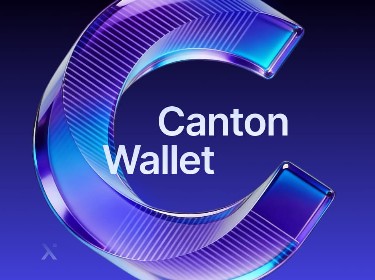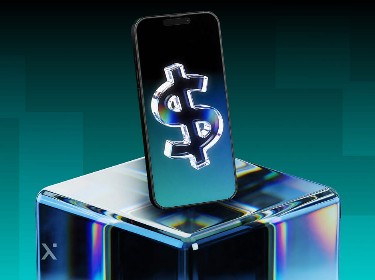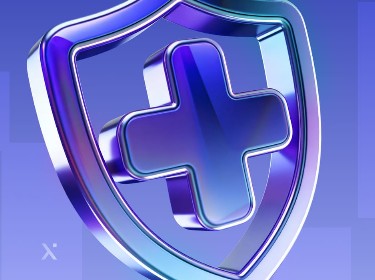Blockchain paved the way for different types of crypto tokens that bring a range of benefits. While payment and non-fungible tokens are all over the media landscape, social tokens are something new and intriguing.
We are gradually moving towards Web 3.0 and a creator economy era which will allow authors to directly connect with their audiences, eliminating dependence on middlemen. Thus, not only creator-follower relationships will get stronger, but also creators’ revenue will no longer be wasted on service charges. And social tokens are here to make it happen.
Social tokens are the type of cryptocurrency that allows creators and brands to monetize experiences or services. You can tie practically any reward to a social token: exclusive content, merch, an invitation to a meeting in person, etc.
Read on to find out what types of social tokens are out there, what benefits they offer, and what to take into consideration when launching your own social token.
What benefits do social tokens bring for your business?
![]()
There are multiple benefits that come with the launch of social tokens, specifically:
- Additional monetization — well-established creators and brands can use social tokens to increase their revenue streams, while beginners and start-ups can leverage them as a source of initial funding and for advertising.
- Deeper audience engagement — social tokens are a great way to support a favorite business or creator and enjoy a unique experience in return.
- No middlemen — social tokens allow for direct communication between your brand and your audience, cutting out middlemen and extra expenses associated with them.
- Equality — anyone can issue their own social tokens and start promoting content or products.
What types of social tokens are out there?
![]()
There are four types of social tokens: personal tokens, community tokens, participation tokens, and social platform tokens. Let’s take a closer look at each of them.
Personal token
Personal tokens are issued by individuals to provide privileged services to their audience. The range of possible offerings is limited only by the creator’s imagination and can be anything from one-of-a-kind merchandise to private Q&A sessions.
One of the most remarkable examples of personal tokens is tied to the name of Alex Masmej, blockchain entrepreneur and founder of Showtime. His collection of personal $ALEX tokens was one of a kind back in 2020.
Alex launched his personal token to raise funds for his trip to San Francisco. In return, token holders were promised a share of Alex’s future income for the next 3 years and a chance to influence his lifestyle choices, such as meals and accommodation. As a result, Alex managed to gain $20,000 in 100 hours.
Community token
Community tokens are launched by brands, companies, or groups of creators and offer attractive benefits to their followers and customers such as exclusive products, services, and experiences.
In contrast to personal tokens, which unlock perks associated with a particular person, community token holders can be offered governance rights and a share of the company’s revenue.
Community tokens are usually issued by decentralized autonomous organizations that are developed by a professional DAO blockchain development company. One of them is WHALE, a membership club for admirers of digital art and culture. The $WHALE token is the first social token backed by an NFT collection. The community can boast over 20,000 active members worldwide.
$WHALE token holders enjoy a range of project benefits including free NFT rentals, NFT airdrops, access to exclusive NFTs and market insights, liquidity mining rewards, and WHALE DAO governance.
NFT Launchpad Development: a Comprehensive Guide Based on PixelPlex’s Expertise
What Is POAP and How to Use It Effectively?
Take a look at Mantra DAO — a community-governed DeFi platform enabling participation in staking pools on different blockchain networks
Participation token
Participation tokens are often viewed as a subcategory of community tokens and are granted for active participation in project development. These tokens are great instruments for businesses to attract new audiences and keep existing ones engaged in their activities and offerings.
For example, Friends with Benefits, a project mixing culture and crypto, grants $FWB tokens to its most passionate contributors who have actively been involved in upgrading the platform’s existing projects and putting forward new creative proposals.
Social platform token
Social platform tokens can be earned simply by engaging in a social platform’s activities including posting and commenting.
Such a model has been implemented at Torum, a Web3 social platform designed to connect cryptocurrency enthusiasts. Active Torum users can earn its native token, $XTM, by producing content, liking others’ content, accumulating followers, or onboarding new users via a referral code. $XTM can also be used to reward fellow users.
Social tokens vs. NFTs
Even though social tokens and non-fungible tokens may at first seem to be one and the same concept, one key difference sets them apart — social tokens are fungible. This means that two tokens from the same creator collection are identical in value and can be mutually exchanged.
Another difference lies in the fact that NFTs acquire value depending on different factors: rarity, ownership history, unlockable content, etc., whereas the value of a social token is tied exclusively to the creator’s personality or the brand’s reputation. Will all that, we advice to seek help of a trusted NFT token development company before starting your NFT implementation journey.
How to Ensure Infrastructure Security: Best Practices for Your Business
12 Most Prominent Use Cases of Construction Data Analytics
Should you invest in NFTs? Let’s find out
Top 3 social token platforms to look out for in 2023
There are several blockchain platforms that help create social tokens fast and effortlessly. They also serve as marketplaces where these tokens can be showcased and traded. We will take a look at three of them: Rally, Roll, and BitClout.
Rally
Rally is a platform that allows creators to build their own independent digital economies. To launch one’s social token on Rally, there is no need to have experience in crypto. The platform team takes all technical issues on themselves, building tokens on the Ethereum blockchain. Launching a social token on Rally is completely free and usually takes 2-3 weeks.
Users can buy social tokens from their favorite creators directly on Rally with a credit card or one of the major cryptocurrencies such as Bitcoin, Ether, and Rally’s native coin, $RLY.
Roll
Roll is another platform helping creators tokenize their personal brands. Social tokens minted on Roll are based on the Ethereum ERC-20 token standard, meaning that you can plug into any other smart contract application on the Ethereum blockchain. No fee is taken to launch a social token, but Roll will keep a 1% share in the creator’s token.
All tokens launched on Roll are displayed on the platform and are available for sale.
BitClout
BitClout is a Web3 social media platform running on the DeSo blockchain. Its functionality resembles that of Twitter and allows users to share short posts and photos. Each profile on the platform gets its own coin that anybody can buy. The more people buy the token, the more expensive it gets.
BitClout has reserved profiles for 15,000 celebrities to prevent identity theft and encourage them to join the platform. However, not all of them like the idea that their names and photos are displayed on the BitClout token marketplace whereas they didn’t actually join the project.
Top 10 Real-Life Applications of Large Language Models
What Is Federated Learning: Key Benefits, Applications, and Working Principles Explained
Get acquainted with the most thrilling Web3 use cases from 2026 and beyond
What to consider when launching a social token for your business?
Before launching your own social token, it is important to consider the following aspects:
- Token type — decide what type of social token suits your purpose best. If you are an individual creator, then opt for a personal token. If you represent a brand or a company, consider a community or a participation token.
- Economy — map out your token economy strategy, including amount of tokens, ways of distribution, price, and vesting schedule.
- Offerings — work out what perks you will offer to followers for social token acquisition. They should be unique and valuable to boost their motivation to get the token.
- Reputation — the value of your social token will be tightly connected to your personality or the project you represent, so make sure that no accident may cast a shadow on your reputation.
How to launch a social token in 3 steps?
![]()
When you decide to give your social token the green light, make sure you follow these three steps:
Step 1. Build the community
To secure interest in your social token, an established community is a must. Your followers will provide you with valuable insights on how they imagine your token to be, and will help you spread the word to a wider community of crypto enthusiasts.
Step 2. Create social token
You can opt for one of the platforms like Rally or Roll, which will help with the launch of your social tokens. However, since they issue large numbers of social tokens, their approach is quite standardized and lacks flexibility. For a more personalized approach, you can seek assistance from experienced custom blockchain development company who will tailor the social token exactly to your business needs.
Step 3. Distribute social tokens
Start distributing your social tokens to see how your audience reacts and interacts with them. Based on their feedback, you can then upgrade the token and implement new features.
Discover the best methods of token distribution in our article
Conclusion
Social tokens are a new attribute of the steadily evolving Web 3.0 era.They offer creators and brands financial independence from intermediaries such as labels and social media executives. Social tokens also enable deeper interaction between fans and creators, strengthening audience loyalty and engagement.
Depending on the type of social token, holders can be entitled to a variety of benefits, from one-of-a-kind merchandise and services to a project’s governance rights and revenue shares.
However, to launch social tokens successfully, you should have a strong community and viable tokenomics. Our tokenomics development company is keen to advise you on all details relating to the social token deployment process, and create a token that will best meet your requirements.
Let’s dive into Web 3.0 together — drop us a line.
Disclaimer: The information provided in the article is for educational purposes only. It does not constitute advice or recommendations for embracing or investing in social tokens. Please seek professional advice before taking financial risks.




